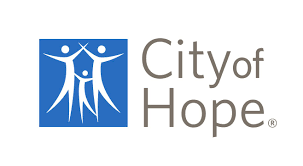
Navigating Difficult Conversations With Patients With Terminal Cancer Diagnoses

An expert explained the importance of having strong communication skills not only for all patients with cancer, but especially for those who received a terminal diagnosis.
Although oncology nurses need strong communication skills to help all of their patients navigate their cancer journeys, it is critical to have the ability to have difficult conversations with patients who received a terminal diagnosis, an expert said.
“It is a nurse that is most likely to be there with the patient across every setting of care — whether it's inpatient, outpatient, homecare, telephone, telehealth — … [and] the most predominant profession, the most likely person to listen to the patient's angst, [which] is why it's so important that every nurse has very good communication skills when it comes to this topic,” Betty Ferrell, Ph.D., M.S.N., CHPN, director and professor in the Division of Nursing Research and Education in the Department of Population Sciences at City of Hope in Duarte, California, said in an interview with Oncology Nursing News.
Ferrell noted that communicating with patients goes beyond those who receive a terminal diagnosis, as it can be overwhelming news regardless of the disease stage.
“As nurses, we know that the moment a patient hears, ‘You have cancer,’ it doesn’t matter from there. It’s devastating news,” Ferrell said. “These difficult conversations are important at any stage of the diagnosis, whether the patient has a very good prognosis, [and] we have really tough conversations with cancer survivors as well. This is all important beyond just those who have a limited life.”
She added that most patients immediately connect the word “cancer” with “death,” as that is often one of their many fears. And oncology nurses understand that patients can have almost an immediate reaction to the news.
“We’re aware that once you hear words like [cancer], your brain really shuts down because you’re no longer going to be thinking clearly and receiving information,” Ferrell said. “You will be so overwhelmed with the emotion. … Nurses are the ones that are witnessing that reaction, and they are also on the frontlines to support patients with those reactions.”
Although a nurse’s key role is patient education, it is also important to be present and listen to the patient.
“When patients have just received really overwhelming information, as oncology nurses, we should pause and we should realize the first most important thing is not what we're going to say to the patient, but that we're going to be fully present and listen to the patient,” Ferrell said. “… It is not our job to pull up a chair and then tell this woman everything we know about breast cancer. It is our job to pull up a chair, to sit with a few seconds of silence, and then to listen, to say to the patient, ‘I can't imagine how shocked you must be.’”
This is also the time for oncology nurses to be connected with the patient while listening to them express all of their emotions, including confusion and fear, among others. Ferrell mentioned that there will be other visits for the nurse to discuss treatment options and side effects.
Some patients may not want touch or for someone to be sitting next to them while they are processing the news of their diagnosis, especially because every patient responds differently. For example, some patients cope by information, when they want to go online and research their treatment options. Other patients may feel the need to compose themselves in the presence of their mother, spouse, or someone else who is waiting for them in the lobby—to hide their emotions and plan to tell their support system about their diagnosis once they are home.
“As nurses, we know that every patient that we see, even though they may all have the same diagnosis in the clinic today, every patient that we see is a different person, and they'll respond differently,” Ferrell said. “For some people, they will want to weep. They won't have words, but they will just sob because this is so devastating. For someone else, they may have 40 questions for us.”
Supporting the Support System
Caring for a patient with cancer goes beyond the patient themselves and includes their family, friends, caregivers, and others. Ferrell urged nurses to enter clinic or patient rooms by introducing themselves to the patient while asking them who they are with today.
“We need to know who is there, what is the relationship? And then we also want the opportunity to [know] who does the patient want included in conversations,” Ferrell said.
She gave an example of a patient who is there with her 20-year-old daughter, who is also devastated that her mother has cancer. Ferrell suggested that oncology nurses use this as an opportunity to guide the conversation with the patient, allow them to ask questions, and potentially dedicate another appointment to address questions about treatment options.
“Maybe the patient is going to say to us, ‘Today, I just have a few questions,’ because the patient doesn't really want the daughter to be included in more detailed information about prognosis or treatment approaches,” Ferrell said. “Nurses have a very intimate relationship and bond with the patient. But we always let the patient guide that conversation. How can we help you today? What's most on your mind today? Then we listen to the patient, and let the patient tell us what is going to be most supportive.”
Education on Communication
Ferrell mentioned that for the past 24 years, her institution has been directing a project called the End-of-Life Nursing Education Consortium (ELNEC), which is a palliative care training program and includes a module focused on communication.
“One of the things that we teach nurses is … that your No. 1 job is to listen,” Ferrell said. “Another thing that we say to nurses is, it is not your job to have all the answers. Patients ask very unanswerable questions. ‘Why me?’ is not an answerable question. But when a patient says, ‘Why me,’ then we want nurses to have good communication skills to say, ‘I can imagine why you're asking that question. Because as you've shared with me, you had no idea that you might be diagnosed with cancer, or you're the first person in your family to ever have cancer.’”
In this module, nurses are taught to ask open-ended questions or use communications tools like naming emotions (i.e., “I can see that you’re overwhelmed by this,” “I can see that the discussion of treatments is making you really anxious,” “I hear from you that you’re very afraid of what this will mean for your family.”).
Acknowledging emotions is also important for nurses. Ferrell mentioned that patients can feel alone and they may fear feeling abandoned. “Some patients will often say, ‘Well, if I don’t get more chemotherapy, will you still be my nurse?’ That’s a very common thing,” she said.
“We coach nurses how to say, regardless of what you choose, or what direction your physician has planned for your treatment, we will be there with you. We are on this journey with you,” Ferrell added. “That promise of non-abandonment … is to say, we’re nurses, we’re here for you. These are the kinds of things that are very meaningful to patients.”
The connection that oncology nurses have with patients, that can last for months and years, is something that Ferrell called a “real privilege of being an oncology nurse.” She said that patients will often remember the nurse that was with them the day they received their diagnosis, along with other anecdotes.
“Patients remember the nurse,” Ferrell said. “They remember what we said to them or how we listened to them. And that's why it's so important to teach good communication skills.”
Ferrell also noted that she and her City of Hope colleagues currently have a grant funded by the National Cancer Institute on training oncology advanced practice registered nurses (APRNs) in palliative care. The grant was just renewed for 5 more years, and they recently held their first training course in this renewal, which includes communication skills unique to APRNs.
“The oncology APRN often plays a different role than other clinical nurses,” she said. “Many APRNs are sharing that they are the person that gives the lab results or talks to the patient once the scan results are known. APRNs are often more involved with guiding patients through treatment decisions. All oncology nurses need good communication skills. But … advanced practice nurses need even more communication skills in order to do their job of being specialists and also being the advanced provider that discusses difficult topics, shares bad news, and supports patients.”
Newsletter
Knowledge is power. Don’t miss the most recent breakthroughs in cancer care.































































































